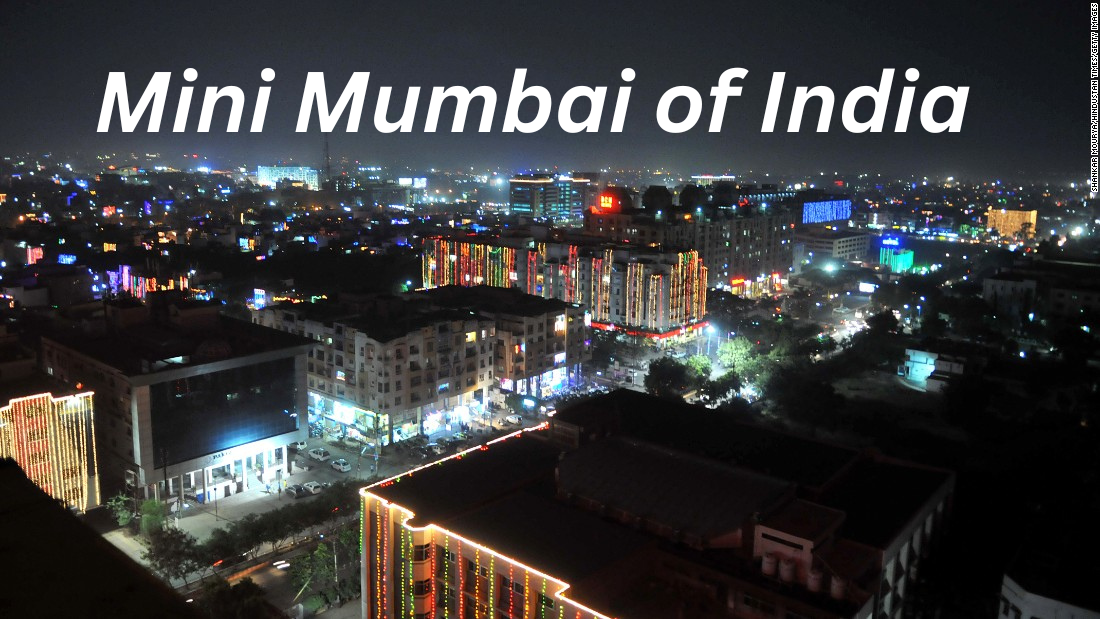Mini Mumbai of India: Indore
Indore, often recognized as the “Mini Mumbai of India,” transcends its reputation as a clean and well-organized city; it serves as a bustling center for industry, education, culture and innovation. Holding the position of the second-largest city in Madhya Pradesh, Indore has achieved a remarkable feat by securing the title of the Cleanest City of India for two consecutive years, closely trailed by Bhopal, the state’s capital. This acknowledgement by the Union Ministry of Urban Affairs attests to the city’s impressive evolution in recent times.
Why is Indore known as “Mini Mumbai”?
Indore, often referred to as “Mini Mumbai of India” due to various reasons, some of them are:
1. Economic Hub
Like Mumbai, Indore has become a thriving economic center. It hosts a diverse range of industries, including manufacturing, textiles, information technology and education. This economic diversity resembles Mumbai’s status as India’s financial capital.
| Other Important Articles | |
| Nickname of Indian Cities | Space City of India |
| City of Lakes | Yoga City of India |
2. Connectivity
Indore’s strategic location in central India grants it excellent connectivity through road, rail and air networks. This accessibility makes it a logistics and transportation hub, similar to Mumbai.
3. Political Support to Mafia
The political support provided to both criminal and trade union mafias in Mumbai further jeopardized the business environment. In contrast, Indore offered a safer and more stable setting for enterprises.
4. Geographic Proximity
Indore’s proximity to Mumbai made it a feasible choice for businesses looking to relocate while maintaining connections with Mumbai’s economic network. This proximity allowed for easy movements of goods and people between the two cities.
5. No Language Barriers
Indore’s population predominately communicated in Hindi and Marathi, eliminating language-related challenges that businesses might face.
6. Basic Infrastructure and Connectivity
Indore already possessed essential infrastructure and connectivity, making it an attractive destination for businesses seeking a smooth transition. The city’s robust transportation networks facilitated trade and commerce.
7. Cultural Similarities
Cultural parallels between Indore and Mumbai, including the influence of Marathis due to the Holkar legacy, provided a sense of familiarity for businesses making the move.
8. Legacy and Reputation
The “Mini Mumbai” nickname for Indore originated in the mid-1970s when it started becoming a hub for business deals and investments. This legacy continues to be associated with the city even today.
Indore’s transformation into a “Mini Mumbai” was fueled by the economic challenges faced by Mumbai during the 1970s and 1980s. Indore’s attractiveness as a business destination stemmed from its freedom from trade unionism, political support to mafias, geographic proximity, language advantages, infrastructure and cultural similarities. While contemporary cities like Ahmedabad may closely resemble Mumbai in various aspects, the historical legacy of Indore as “Mini Mumbai” remains an evident to its enduring significance in India’s economic landscape.
Find More General Studies News Here




 Harsharan Kaur Trehan Becomes PSPCL’s Fi...
Harsharan Kaur Trehan Becomes PSPCL’s Fi...
 Norway Breaks Winter Olympics Record! 17...
Norway Breaks Winter Olympics Record! 17...
 Which Country is the Largest Green Chill...
Which Country is the Largest Green Chill...








